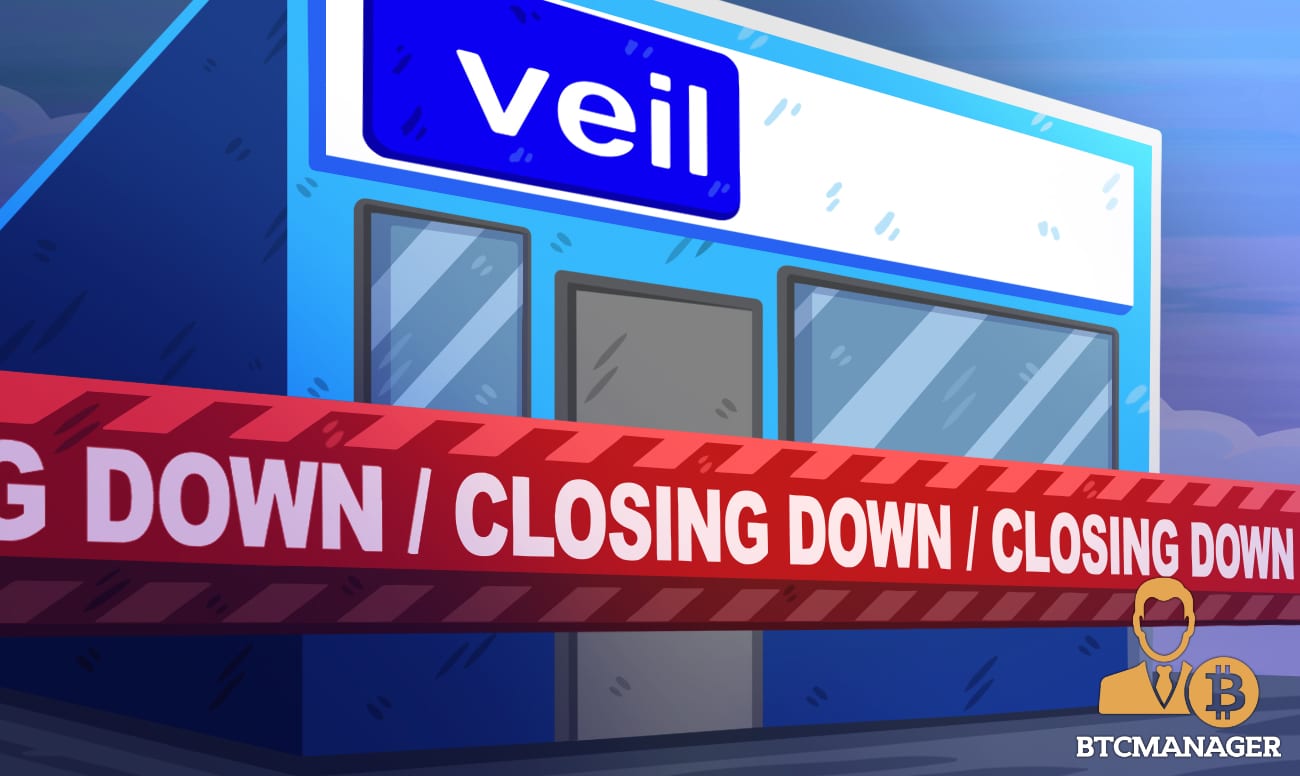Veil Calls it Quits, Cites Lack of Interest in Prediction Markets as Key Reason

On July 12, 2019, Veil, a second layer network over Augur, announced that they would be halting trading in the Augur markets listed on their platform.
Users will be able to trade in active markets until July 24, 2019, after which trading will be halted altogether. The team advises all users to close positions in expired markets, convert their Veil ETH to ETH, and withdraw it from the network.
Efficiency and Distributed Governance
Veil and Augur have failed to make a significant impact on the cryptocurrency ecosystem, despite both being considered substantial projects that could change the course of betting, insurance, and hedging. The closure of Veil signifies the dire situation for decentralized prediction markets.
Paul Fletcher-Hill, CEO of Veil, reported a number of reasons for failure including, the desire to be a generalist prediction market rather than focus on a particular segment, poor onboarding experiences, complexity of using the platform (converting ETH to a wrapped version called Veil ETH), and, most importantly, the tradeoff between decentralization and scalability.
Most of the deficiencies of Veil can be attributed to the general lack of traction for Augur and other such platforms.
Augur is valued at $156 million by the market, and total liquidity for all predictions on the network is just $3.6 million at the time of writing. With liquidity at 2.3 percent of the total market cap, there should be no question that this project was overhyped from an investment perspective and hasn’t lived up to the expectation of the market.
Of late, there has been a lot of debate as to whether betting is an industry where distributed ledgers will make an insignificant impact. While adding a blockchain-based system to anything removes the single points of failure and distributed power across multiple heads, the value it adds in specific sectors isn’t worth the cost or the friction caused by using a distributed ledger.
A prediction market deals with a lot of money, so a blockchain makes sense from a security standpoint.
But the bets being taken are routed through an intermediary and still require a single point of failure to ensure clarity for regulators. The liquidity constraints in decentralized prediction markets are a direct byproduct of the lack of trust in such systems and the decrease in efficiency. Breaking through this is a critical obstacle that must be overcome for large scale adoption.














